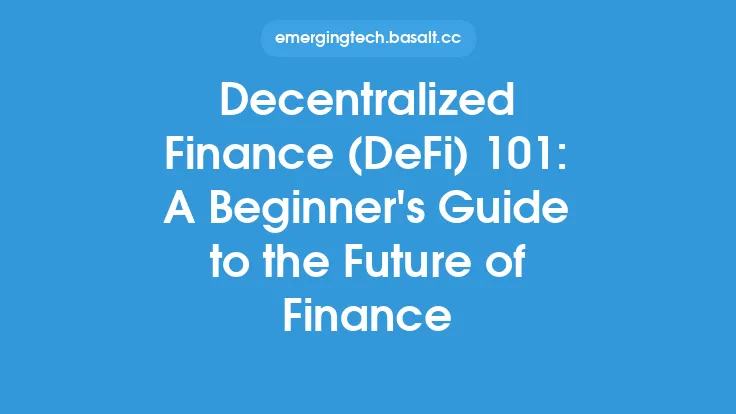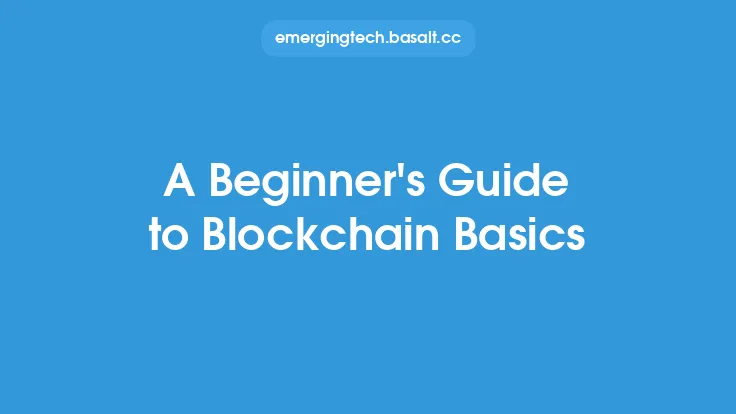Getting started with smart contract development can seem daunting, especially for those new to the world of blockchain and cryptocurrency. However, with the right foundation and understanding of the basics, anyone can begin to explore the exciting world of smart contracts. In this article, we'll delve into the fundamental concepts and principles of smart contract development, providing a comprehensive introduction for beginners.
What are Smart Contracts?
Smart contracts are self-executing contracts with the terms of the agreement written directly into lines of code. They are stored and replicated on a blockchain, a decentralized and distributed ledger technology, which ensures the contract's integrity and transparency. Smart contracts allow for the automation of various processes, such as the transfer of assets or the execution of specific actions, when certain conditions are met. This automation is made possible by the use of programming languages, which define the rules and logic of the contract.
Key Components of Smart Contracts
To understand smart contract development, it's essential to familiarize yourself with the key components that make up a smart contract. These components include:
- Variables: Used to store and manage data within the contract.
- Functions: Define the actions that can be performed by the contract.
- Events: Allow the contract to notify external parties of specific occurrences.
- Conditions: Specify the rules and logic that govern the contract's behavior.
- Loops: Enable the contract to perform repetitive tasks.
How Smart Contracts Work
The process of creating and executing a smart contract involves several steps:
- Deployment: The smart contract is written in a programming language and deployed to a blockchain network.
- Initialization: The contract is initialized with the necessary parameters and variables.
- Triggering: An event or transaction triggers the contract's execution.
- Execution: The contract's code is executed, and the specified actions are performed.
- Verification: The contract's execution is verified by nodes on the blockchain network.
- Storage: The contract's state and data are stored on the blockchain.
Benefits of Smart Contracts
Smart contracts offer several benefits, including:
- Immutable: Once deployed, smart contracts cannot be altered or tampered with.
- Transparent: All transactions and executions are recorded on the blockchain, ensuring transparency.
- Autonomous: Smart contracts can execute automatically, without the need for intermediaries.
- Efficient: Smart contracts can automate complex processes, reducing the need for manual intervention.
Common Use Cases for Smart Contracts
Smart contracts have a wide range of applications, including:
- Supply Chain Management: Automating the tracking and verification of goods.
- Voting Systems: Ensuring the integrity and transparency of voting processes.
- Digital Identity: Securely managing and verifying identity documents.
- Gaming: Creating decentralized and transparent gaming platforms.
Conclusion
Smart contract development is a rapidly evolving field, with new technologies and innovations emerging every day. By understanding the fundamental concepts and principles of smart contracts, developers can unlock the full potential of blockchain technology and create innovative solutions for a wide range of industries. Whether you're a seasoned developer or just starting out, the world of smart contract development offers endless opportunities for growth and exploration. As you continue on your journey, remember to stay curious, keep learning, and always be open to new ideas and challenges.





